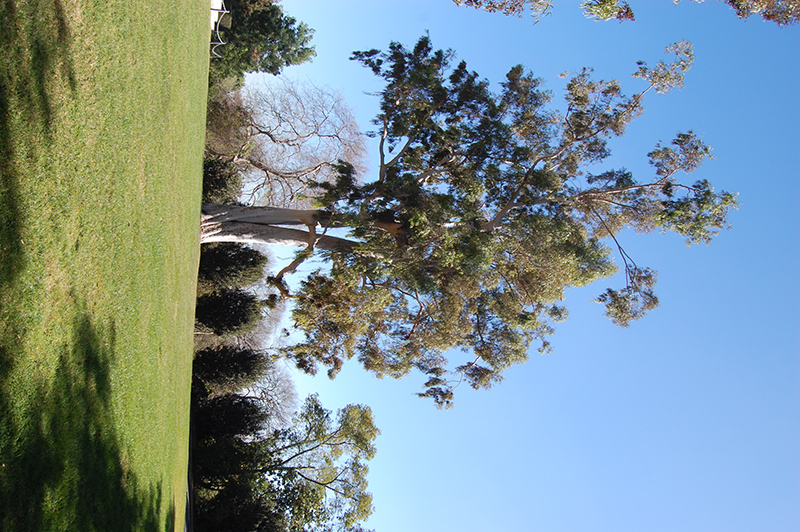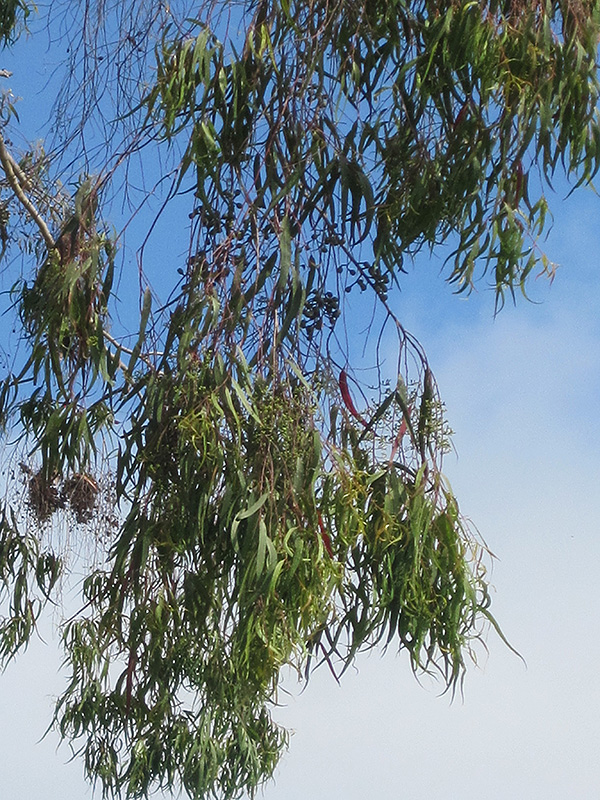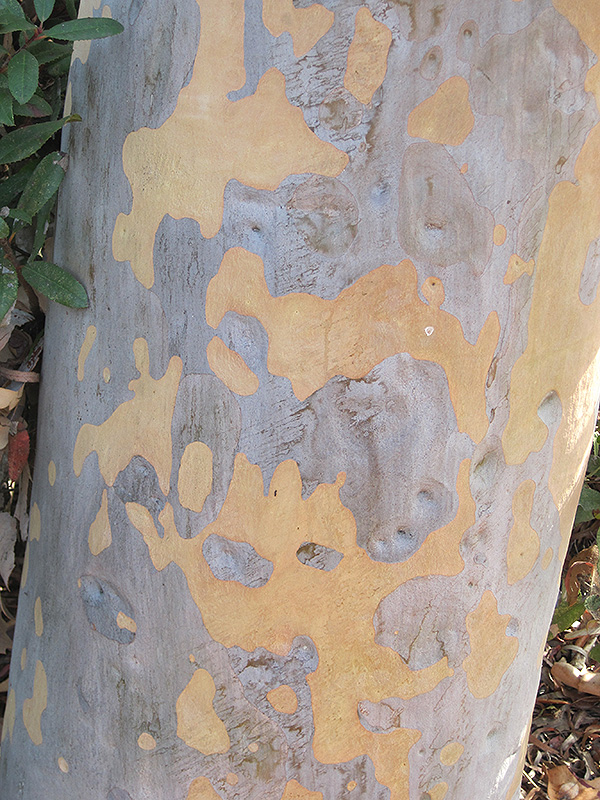Plant Finder
Height: 100 feet
Spread: 50 feet
Sunlight:
![]()
Hardiness Zone: 9a
Other Names: form. Eucalyptus citriodora, Lemon Eucalyptus
Description:
An upright and erect tree, potentially growing to 115 ft but can be regularly pruned to size; a fast growing variety with lemon scented, narrow leaves, and a mottled white to copper trunk; white flowers in winter; needs a large space
Ornamental Features
Lemon-scented Gum features showy clusters of white pincushion flowers at the ends of the branches from early to late winter. It has attractive bluish-green evergreen foliage. The fragrant narrow leaves are highly ornamental and remain bluish-green throughout the winter. The mottled white bark is extremely showy and adds significant winter interest.
Landscape Attributes
Lemon-scented Gum is an evergreen tree with an upright spreading habit of growth. It lends an extremely fine and delicate texture to the landscape composition which can make it a great accent feature on this basis alone.
This tree will require occasional maintenance and upkeep, and can be pruned at anytime. It is a good choice for attracting birds and bees to your yard. It has no significant negative characteristics.
Lemon-scented Gum is recommended for the following landscape applications;
- Accent
- Shade
- Vertical Accent
Planting & Growing
Lemon-scented Gum will grow to be about 100 feet tall at maturity, with a spread of 50 feet. It has a high canopy of foliage that sits well above the ground, and should not be planted underneath power lines. As it matures, the lower branches of this tree can be strategically removed to create a high enough canopy to support unobstructed human traffic underneath. It grows at a fast rate, and under ideal conditions can be expected to live for 60 years or more.
This tree should only be grown in full sunlight. It prefers dry to average moisture levels with very well-drained soil, and will often die in standing water. It is particular about its soil conditions, with a strong preference for sandy, acidic soils, and is able to handle environmental salt. It is somewhat tolerant of urban pollution. This species is not originally from North America.






